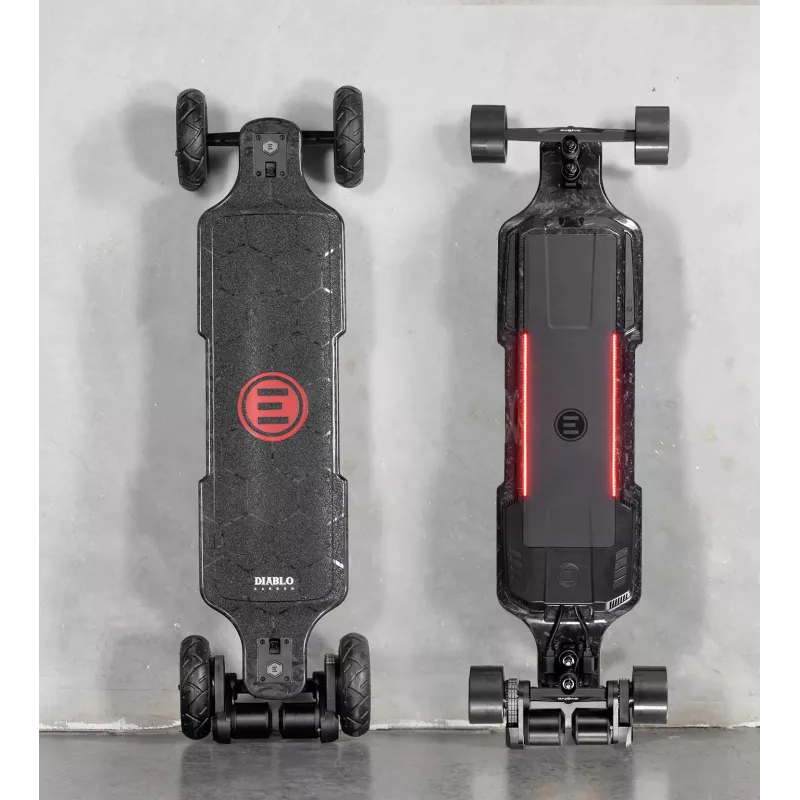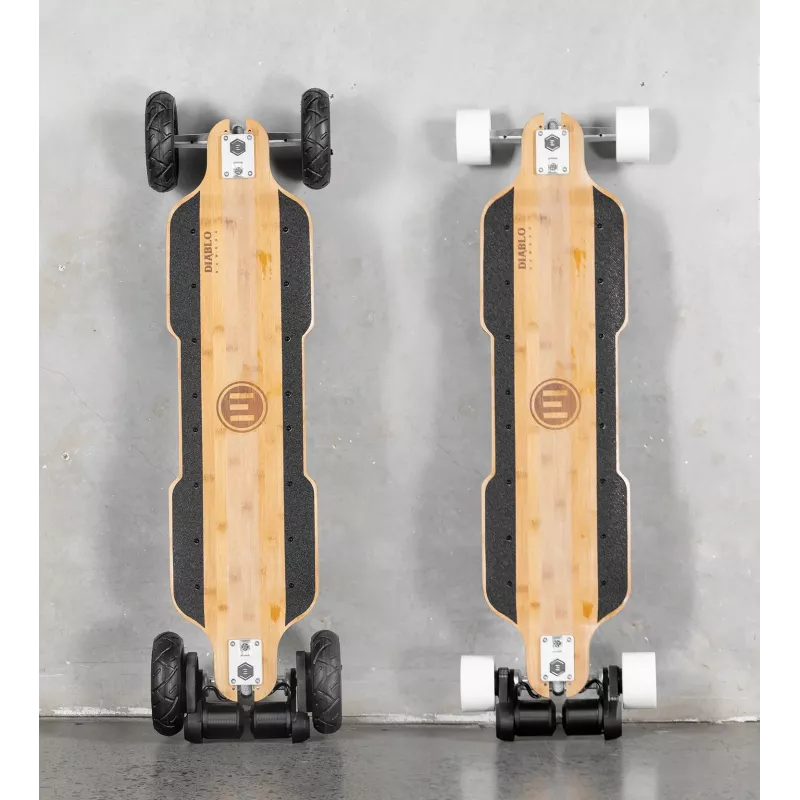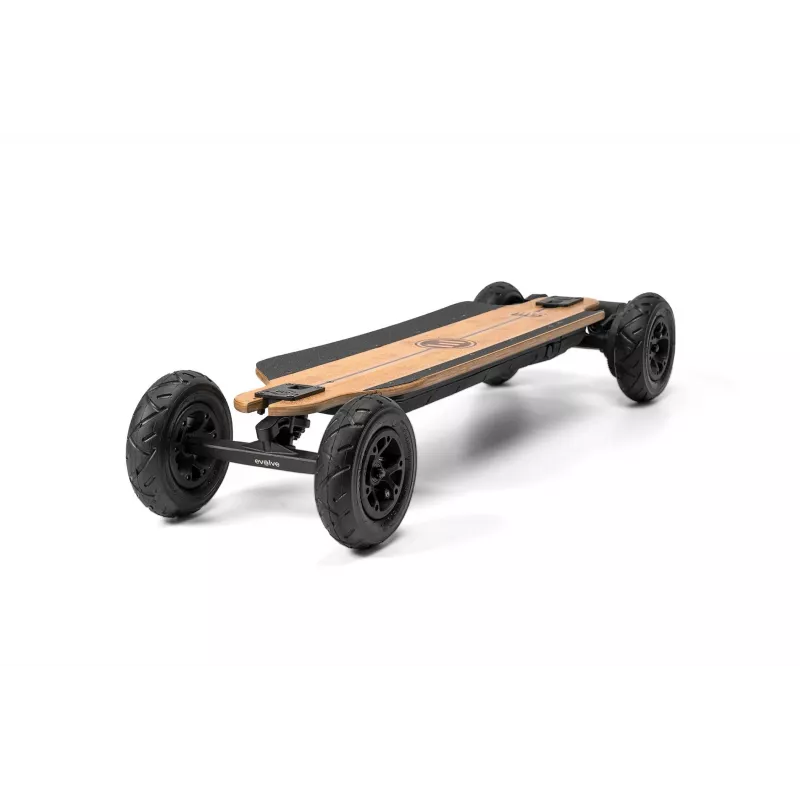DIABLO RENEGADE
Electric Skateboard Legislation in Europe

The use of electric skateboards is subject to specific regulations in each European country. There is no single law at the European Union level, and each country enforces its own rules regarding traffic and safety.
Whether you are a casual rider or an e-skate enthusiast, it is essential to be aware of the legislation in your country before riding in public spaces. Some countries allow their use under certain conditions (speed limits, mandatory equipment, insurance), while others prohibit their circulation on the road.
The information presented here is based on extensive research but does not constitute an official legal source. We strongly recommend checking with local authorities for the most up-to-date and official regulations.
Below, you will find a summary table detailing the regulations by country, indicating whether electric skateboards are allowed, under what conditions, and any applicable restrictions.
Warning: Laws can change quickly, so we advise consulting local authorities to obtain the most recent information.
REGULATIONS IN EUROPEAN COUNTRIES
| European countries | Regulations |
|---|---|
| France | In France, electric skateboards are subject to the EDPM decree, limiting their speed to 25 km/h and prohibiting their use on sidewalks. They must be equipped with lights, reflectors, and a sound warning device, and are only allowed for riders aged 14 and over. They can be used on bike lanes and roads with a speed limit of 50 km/h, and liability insurance is mandatory. Wearing a helmet is highly recommended for added safety. |
| Austria | Electric skateboards are not specifically regulated in Austria. Electric scooters are allowed on the road, while hoverboards and other small vehicles are only allowed on sidewalks, without disturbing pedestrians.
E-skates fall between these two categories, making their legal status uncertain. Although their power is comparable to that of electric scooters, they are not officially recognized by law. Their use on the road therefore remains risky and requires caution. It is therefore necessary to obtain information from the local authorities. |
| Belgium | Electric skateboards are legal and subject to the same laws as self-balancing scooters. They are allowed to travel at speeds of up to 20 km/h and can use the same lanes as bicycles. For more information, click here |
| Croatia | Electric skateboards are not yet specifically regulated in Croatia, making their use uncertain. According to the Croatian Vehicle Center, they could be classified as mopeds or light vehicles type L6 (≤ 350 kg excluding battery, max. speed 45 km/h). As the law is vague, the reaction of the authorities remains unpredictable. It is therefore recommended to be careful and inquire with local authorities. |
| Czech Republic | It is unclear whether electric skateboards are legal in the Czech Republic. The road traffic law does not explicitly mention personal electric or motorized vehicles such as skateboards, scooters or electric bicycles. For more information, click here |
| Denmark | Electric skateboards are legal, but must respect certain restrictions: weight less than 10 kg, maximum speed of 20 km/h and maximum autonomy of 30 km. For more information, click here |
| Finland | Electric skateboards are legal and classified into two categories: to travel on sidewalks, the maximum power must be 1 kW and the maximum speed 15 km/h; for traveling on the road, the maximum power remains at 1 kW, but the speed can reach 25 km/h. In the latter case, it is mandatory to have a front light, reflectors and a sound device. |
| Germany | Electric skateboards are illegal on public roads in Germany. Legislation requires the presence of handlebars for electric vehicles, which excludes electric skateboards. More information on the legal situation for the approval of electric skateboards in Germany (in 2022) |
| Greece | Currently, electric skateboards are illegal in Greece. However, laws are being drafted to allow their use in public spaces. On the sidewalk: Classified as pedestrian, speed limited to 6 km/h On the road: Classified as a bicycle, maximum speed 25 km/h Obligation to have a sticker mentioning the name of the manufacturer, the maximum speed and the vehicle identification number. Source on regulations in Greece here. |
| Iceland | There are no specific laws governing the use of electric skateboards in Iceland. |
| Ireland | To date, there is no specific legislation on electric skateboards in Ireland, unlike electric scooters which are regulated. As the situation is unclear, it is recommended to check with local authorities before using an electric skateboard on public roads. More information on the legislation for electric scooters. |
| Italy | Vague regulations around electric skateboards, check with local authorities |
| Lithuania | The legislation in Lithuania is vague. Electric bikes and scooters under 250W are allowed, but there is no mention of electric skateboards. Official source here. |
| Netherlands | Electric skateboards are illegal. Only cars, mopeds, motorcycles and bicycles are allowed on public roads. |
| Norway | Electric skateboards are legal and subject to the same regulations as bicycles. The maximum permitted speed is 20 km/h, and boards must be equipped with headlights, taillights, reflectors and a bell or horn. |
| Poland | Since 2022 : Compulsory circulation on cycle paths with a maximum speed of 20 km/h. - Priority for pedestrians on mixed cycle paths and in pedestrian zones. - Use of the sidewalk authorized only in the absence of a cycle path, provided you ride at reduced speed and without disturbing pedestrians. - Transporting another person prohibited. - Children under 10 years old: allowed only in residential areas, under adult supervision. |
| Portugal | There are currently no specific laws regarding electric skateboards. Need to contact local authorities for more information on regulations |
| Spain | The legislation in Spain concerns electric scooters but does not include electric skateboards. This is why the legislation remains unclear for electric skateboards. In addition, the rules vary depending on the city, so check with local authorities |
| Switzerland | Electric skateboards are illegal, and police have been known to confiscate these devices. |
| Sweden | Electric skateboards are legal and classified as bicycles, provided their power is less than 250 W and their maximum speed is less than 20 km/h. For more information, click here |
If you wish to access the product sheet of the Diablo Renegade sport version, click here.

Renegade Diablo - Version Compliant with EDPM Decree | Option Fixes Evolve : Without fastenings | Road Approval (Depending on the country) : Bridé à 20 km/h
€3,094.00
Electric skateboard
Renegade Diablo - Version Compliant with EDPM Decree
Option Fixes Evolve
Road Approval (Depending on the country)
€3,094.00
Tax included
Available mid-February (Delivery delay)
You will also like
Previous
Next









